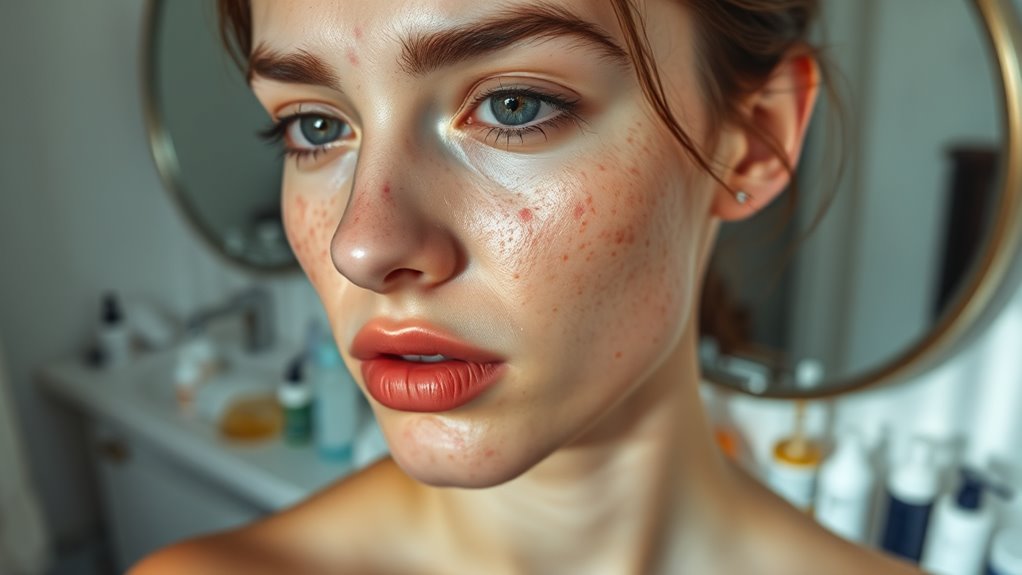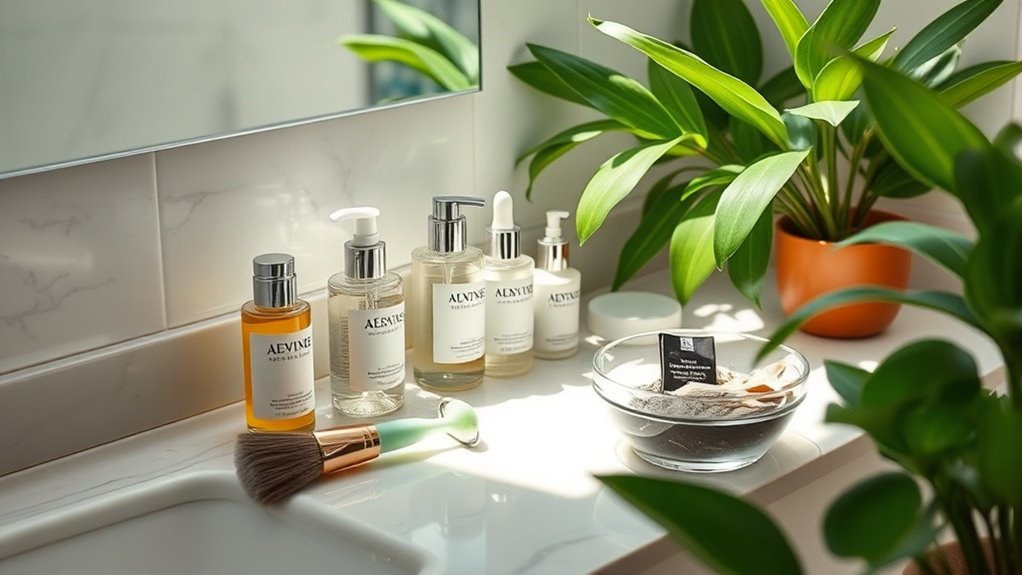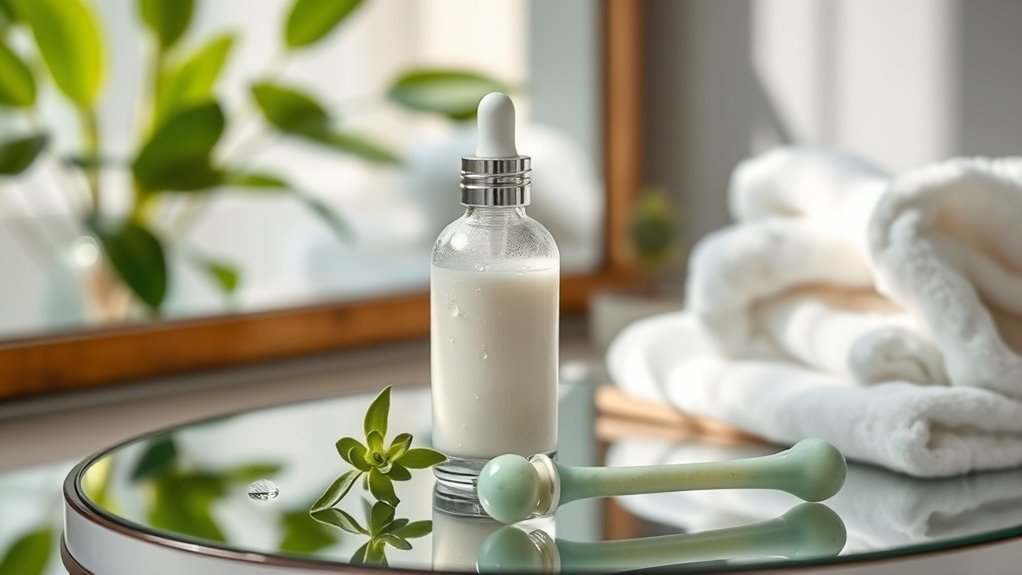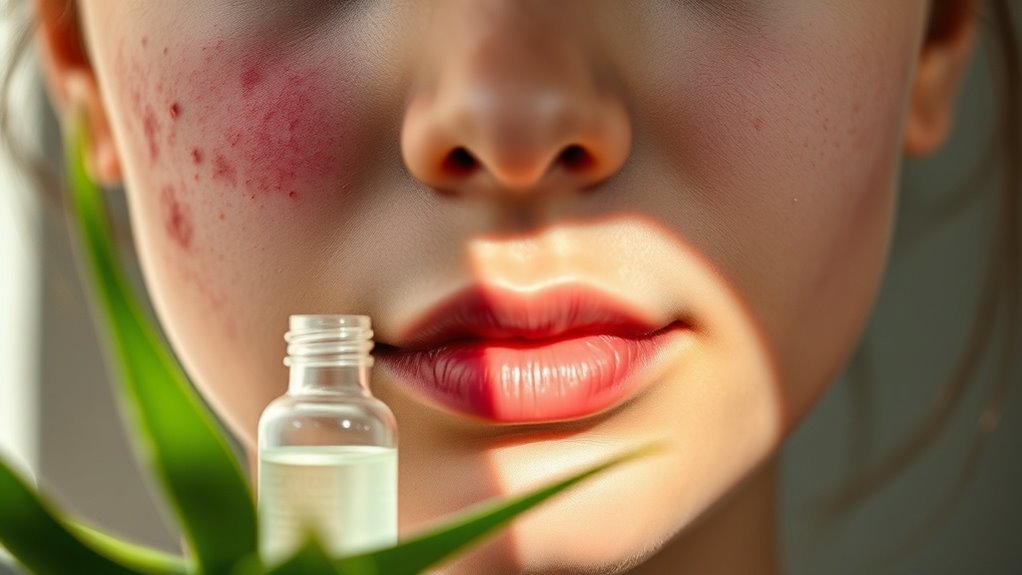The Real Reason Your Acne Keeps Coming Back
Have you ever wondered why your acne keeps returning despite your best efforts? The truth often lies in deeper issues like hormonal imbalances, your diet, and even your skincare choices. These factors can disrupt your skin’s natural balance and lead to persistent breakouts. Understanding these contributors is crucial for effective treatment. So, what are the specific elements you need to consider for lasting clarity?
Hormonal Imbalances and Their Impact on Skin
When hormonal imbalances occur, they can significantly affect your skin health, often leading to increased acne development.
Fluctuations in hormones, particularly androgens, can stimulate excess oil production and clogged pores, key persistent acne causes. If you notice breakouts tied to your menstrual cycle, stress levels, or hormonal changes, you’re likely experiencing the effects of hormone-driven skin issues.
Conditions like polycystic ovary syndrome (PCOS) may exacerbate these hormonal fluctuations, increasing your susceptibility to acne. Additionally, dietary choices can play a significant role in hormone regulation and acne formation.
To manage this, understanding your hormonal health is crucial. Consider consulting with a healthcare professional to explore potential treatments tailored to your specific situation. Balancing your hormones could be a key step to reducing persistent acne and achieving healthier skin.
The Role of Diet in Acne Breakouts
As you consider the factors contributing to acne breakouts, it’s important to recognize that diet plays a significant role. Certain foods may exacerbate inflammatory responses in your body, leading to an increase in acne.
By being mindful of your dietary choices, you can help manage your skin health. Consider the following:
- High glycemic index foods (e.g., white bread, sugary snacks)
- Dairy products (especially skim milk)
- Processed foods rich in trans fats
- Omega-6 fatty acids (found in certain oils)
These dietary components can influence insulin levels and hormonal balance, potentially triggering acne flare-ups. Additionally, studies suggest that certain foods not only may worsen acne but also impact overall skin health.
Maintaining a balanced diet rich in whole foods and omega-3 fatty acids may help promote clearer skin and reduce the frequency of breakouts.
Skincare Routines That Can Worsen Acne
Many people overlook how their skincare routines can inadvertently worsen acne. It’s crucial to evaluate your products and habits. For instance, using harsh cleansers, over-exfoliating, or layering too many products can strip your skin’s moisture and cause irritation, leading to more breakouts. Avoiding this cleansing mistake can significantly improve your skin condition. Check the table below for common mistakes:
| Skincare Habit | Effect on Acne |
|---|---|
| Using alcohol-based toners | Dries out skin, triggers irritation |
| Frequent exfoliation | Breaks down skin barrier |
| Heavy creams/oils | Clogs pores |
| Not removing makeup | Leads to breakouts |
| Mixing too many active ingredients | Increases irritation |
Stress and Its Connection to Skin Health
Stress significantly impacts your skin health, primarily through hormonal fluctuations that can trigger acne. When you’re stressed, your body produces more cortisol, which can lead to increased oil production and clogged pores. Managing stress effectively can help alleviate these issues, as studies have shown that psychological stress correlates strongly with the severity of skin conditions. Implementing effective stress management techniques can help mitigate these effects and improve your skin’s overall condition.
Hormonal Fluctuations and Acne
Hormonal fluctuations can significantly impact your skin health, especially when it comes to acne. Changes in hormone levels, particularly testosterone and estrogen, can increase oil production in your skin, leading to clogged pores and breakouts.
It’s essential to understand how your body’s hormonal cycles influence acne formation.
-
Menstrual Cycle: Women often experience flare-ups due to hormonal shifts before menstruation.
-
Pregnancy: Pregnancy hormones can cause significant changes in skin condition.
-
Contraceptives: Hormonal birth control can either alleviate or exacerbate acne depending on the type used.
-
Thyroid Issues: Imbalances in thyroid hormones may also contribute to skin problems.
Addressing these hormonal factors is crucial for effective acne management.
Stress Management Techniques
Emotional and psychological factors can greatly influence skin health, often exacerbating conditions like acne. Stress triggers the release of hormones like cortisol, which can lead to increased oil production and inflammation in your skin. Implementing effective stress management techniques can help mitigate these effects and promote clearer skin. Consider the following strategies:
| Technique | Description |
|---|---|
| Mindfulness | Practice being present through meditation or deep-breathing exercises. |
| Physical Activity | Engage in regular exercise to boost endorphins and reduce stress levels. |
| Adequate Sleep | Prioritize 7-9 hours of quality sleep to support overall health and recovery. |
Environmental Factors That Contribute to Acne
Many factors in your environment can significantly contribute to the development of acne. It’s essential to recognize these elements, as they can exacerbate existing conditions or trigger new breakouts.
Here are some key environmental factors to consider:
-
Air pollution: Dust, smoke, and chemical compounds can clog pores and irritate your skin.
-
Humidity: High humidity levels can increase oil production, leading to clogged pores.
-
Hormonal fluctuations: Exposure to environmental stressors can trigger hormonal changes that promote acne.
-
Dietary influences: Consuming high-glycemic foods or dairy can contribute to flare-ups, while avoiding certain foods linked to acne triggers may help improve your skin’s appearance.
The Importance of Seeking Professional Help
Seeking professional help is crucial for effectively managing acne.
A dermatologist can help you identify underlying causes and create personalized treatment plans tailored to your specific needs. Additionally, ongoing monitoring and support ensure that your treatment adapts as your condition changes. Incorporating natural detox methods can also complement your skincare routine and enhance overall results.
Identifying Underlying Causes
Although understanding the specific underlying causes of acne can be complex, it’s crucial to consult a healthcare professional for an accurate diagnosis.
Identifying these causes allows for effective management of the condition. Here are some key factors to consider:
-
Hormonal imbalances: Fluctuations can trigger excess oil production.
-
Dietary influences: Certain foods may exacerbate acne for some individuals.
-
Stress levels: Increased stress can promote acne flare-ups.
-
Skin care practices: Inappropriate products can irritate your skin and worsen acne.
Personalized Treatment Plans
Identifying underlying causes plays a vital role in formulating effective treatment plans for acne. When you seek professional help, dermatologists assess your specific skin type, hormonal levels, and lifestyle factors.
This personalized approach ensures your treatment addresses direct causes rather than just symptoms. You might benefit from topical medications, oral antibiotics, or hormonal therapies tailored to your needs.
Additionally, understanding your skin’s unique response to different ingredients allows for more targeted solutions, which can enhance efficacy and reduce side effects.
Regular consultations with a dermatologist can refine your treatment plan over time, adapting to your skin’s evolution and ensuring optimal results. Prioritizing personalized care is crucial for achieving and maintaining clear skin in the long term.
Ongoing Monitoring and Support
Ongoing monitoring and support are crucial components of an effective acne treatment strategy. Regular follow-ups with healthcare professionals can help you stay on track and adjust your treatment plan as needed.
Professional guidance ensures that you’re using the right products and maintaining healthy skin.
Consider these important factors in your acne management:
-
Regular evaluations: Assess treatment effectiveness and make timely adjustments.
-
Emotional support: Address any psychological effects acne may have on self-esteem.
-
Education: Learn about skincare routines and triggers to prevent breakouts.
-
Treatment adherence: Maintain accountability by following prescribed guidelines.




